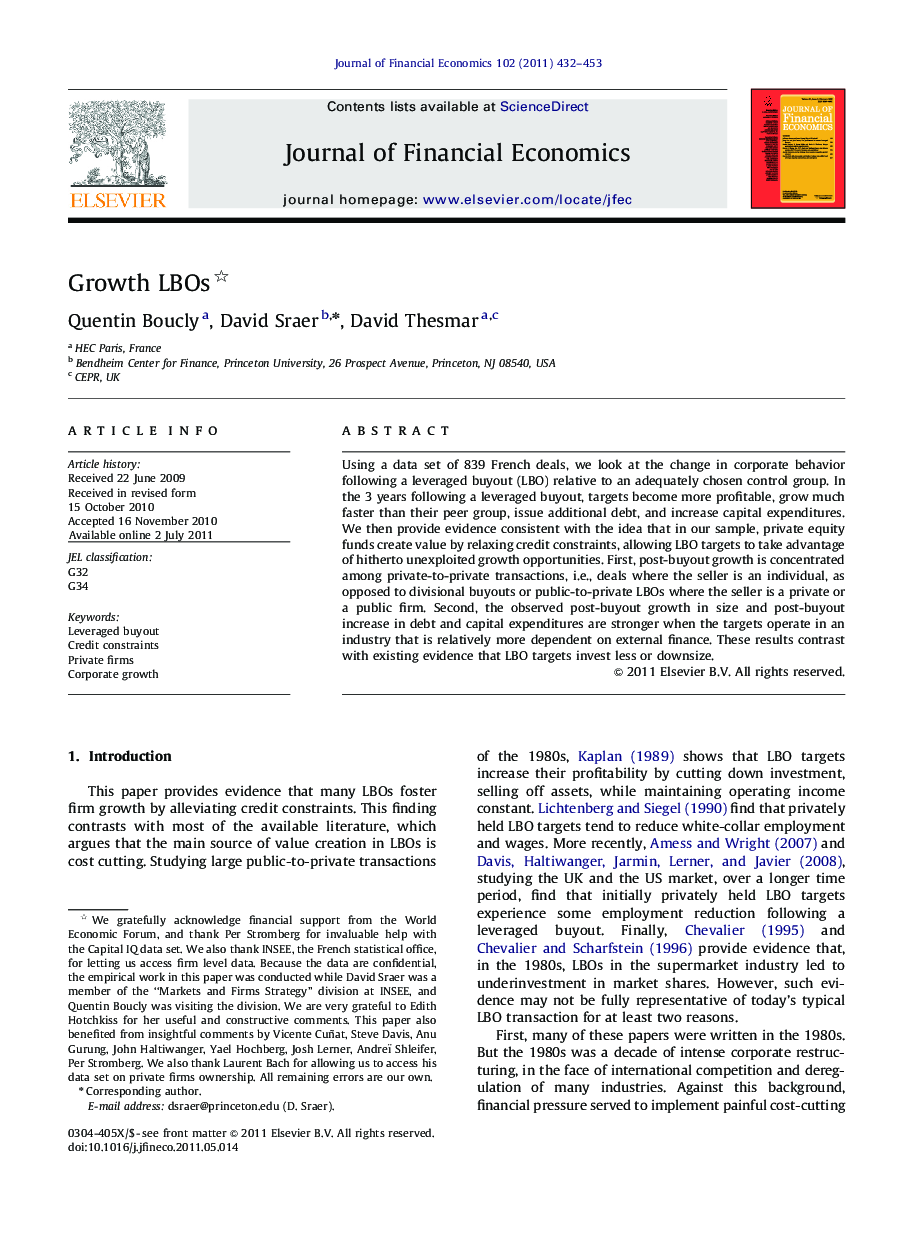| Article ID | Journal | Published Year | Pages | File Type |
|---|---|---|---|---|
| 959621 | Journal of Financial Economics | 2011 | 22 Pages |
Using a data set of 839 French deals, we look at the change in corporate behavior following a leveraged buyout (LBO) relative to an adequately chosen control group. In the 3 years following a leveraged buyout, targets become more profitable, grow much faster than their peer group, issue additional debt, and increase capital expenditures. We then provide evidence consistent with the idea that in our sample, private equity funds create value by relaxing credit constraints, allowing LBO targets to take advantage of hitherto unexploited growth opportunities. First, post-buyout growth is concentrated among private-to-private transactions, i.e., deals where the seller is an individual, as opposed to divisional buyouts or public-to-private LBOs where the seller is a private or a public firm. Second, the observed post-buyout growth in size and post-buyout increase in debt and capital expenditures are stronger when the targets operate in an industry that is relatively more dependent on external finance. These results contrast with existing evidence that LBO targets invest less or downsize.
► In our sample of 865 deals, LBOs foster not only profits but also growth of the target. ► Private equity funds create value by relaxing targets’ credit constraints. ► Our results contrast with previous evidence that LBO targets invest less or downsize.
